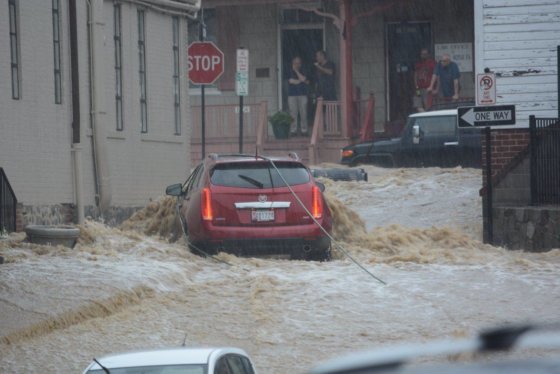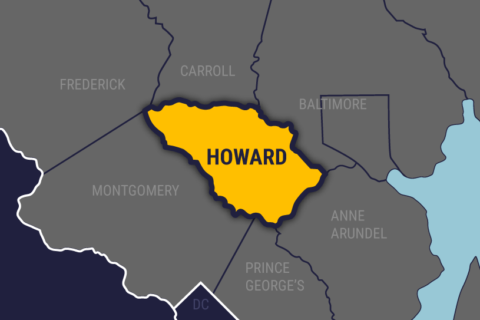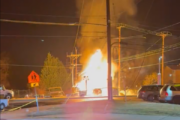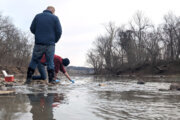WASHINGTON — Ellicott City has a history of flooding due to its location between two creeks and the Patapsco River, but a severe storms meteorologist believes the city could benefit from a rapid flood warning system, which could provide precious minutes to clear out Main Street.
Professor Jeffrey Halverson of the University of Maryland Baltimore County said the civil engineering projects underway in Ellicott City, including construction of culverts and retention ponds, can help reduce the threat of flooding but cannot entirely eliminate it.
“I think a lot of effort should also be put into a very rapid warning system there — more rain gauges, more stream gauges, a smart prediction system that can give a warning based on minutes, with some type of lead time, at least to get people and cars off the street,” he said.
Halverson, who has worked as a severe weather meteorologist with NASA, said a robust system of rain and stream gauges could be deployed in and around Ellicott City.
Data from the gauges would be compared to computer modeling so that when waters rise to dangerous levels, automated alerts could be sent to people’s smartphones.
“The system — based on the input it was receiving — within literally a minute or two — it would make a calculation — over the next 20 or 30 minutes of how that watershed was going to respond, how quickly was the water going to come up and where,” Halverson said.
As an example, he pointed to earthquake-detection research being done on P-waves, the early pressure wave that precedes an earthquake, which may effectively detect and provide an early lifesaving warning of the pending quake.
“I think it’s well within the reach of our technology to have some type of warning system where people get a message on their phone saying, ‘If this rate of rain keeps up for the next 10 or 15 minutes, you [should] seriously think about leaving the town,'” he said.
Halverson, whose research includes the intensity of hurricanes and also severe storms in the Mid-Atlantic, said there’s no way to forecast the extreme flooding that struck Ellicott City.
“It did happen twice here in the space of 22 months. It could happen again next summer, it might not happen for 50 years, it might not happen for 300 years.”







